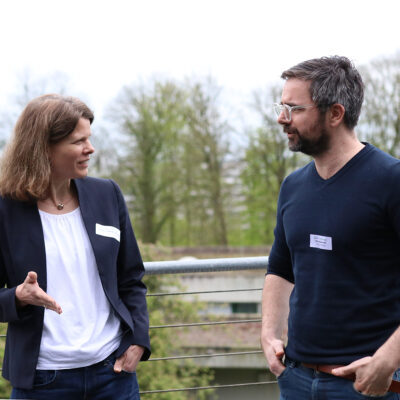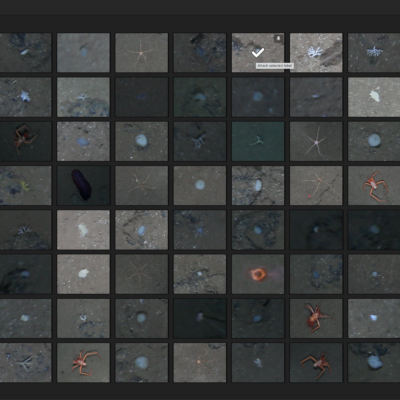Genes or the environment: which has a stronger effect on the development of an individual? A study by behavioural ecologists suggests that the question needs to be asked differently: at what points in life do genes have a stronger influence on the individual, and when the environment? In the new episode of research_tv, they report their conclusions.
The study is presented in the new episode of research_tv.
Microbiota are everywhere on our skin and in the gut, and they really contribute to the way we think, they contribute to the way we behave, to our cognitive behaviours. We know that actually the microbiota in terms of numbers and genes, is much larger than our own genes. And we also know that they play an important role when it comes to animal behaviour. They change our body odours, they change our behaviour and that makes them actually very interesting to study. The research question was to what extent does the social environment play a role in gut microbiota or in the composition of the gut microbiome. And to what extent is the genetics, the host genetics influencing the gut microbiome We worked on zebra finches and bengalese finches. And the nice thing about birds is that you can manipulate the birth environment. So what we did is, we actually swapped single eggs into another nest and we waited until these chicks hatched. And then we start collecting fecal samples from chicks and adults to see in which developmental stages they will resemble their foster families and their genetic families. In one experiment, we fostered them into the into the nest of the different species. So we used zebra finch eggs and put them into bengalese finch nests. And then we checked the development and the composition of the gut microbiota. During early development, so five and ten days after hatching, the gut microbiota are very similar to their foster parents, so there is clearly a social component. But after 35 days, so after nutritional independence, the gut microbiota actually becomes more similar to the zebra finch parents. And that shows that in the early development, social environment is really an important factor. But later in life, the host genetics is actually more important. In this study we examined or we investigated individualization in changing environments, because we also changed the environment. And this is part of a of a bigger picture between Münster and Bielefeld, where a lot of collaborations take part and where we study individualization in changing environments, on the one hand due to collaborative research centers, but also in a joint institute of individualization in a changing environment. So when we are studying individuality of behaviour, for example, we should always keep microbiome in our minds.
In the study, the researchers looked at zebra finches. Their approach analysed how the gut microbiome of the young chick changes over time. To find out how environmental conditions affect the bacterial composition in the gut, they did not let the chicks hatch and grow up with their genetic parents, but with another bird species: the Bengalese finch.
In the new episode of research_tv, the researchers present their study and their surprising findings. The study was published in the journal Microbiome. The behavioural ecologists cooperated on this research with geneticists from the Center for Biotechnology (CeBiTec) at Bielefeld University.
The study is part of the Bielefeld research on individualization in changing environments. Bielefeld University is cooperating on this topic with the University of Münster—in the joint institute JICE, the research network InChangE funded by the state of North Rhine-Westphalia, and the Collaborative Research Centre NC³ (SFB/TRR 212) funded by the German Research Foundation DFG.





